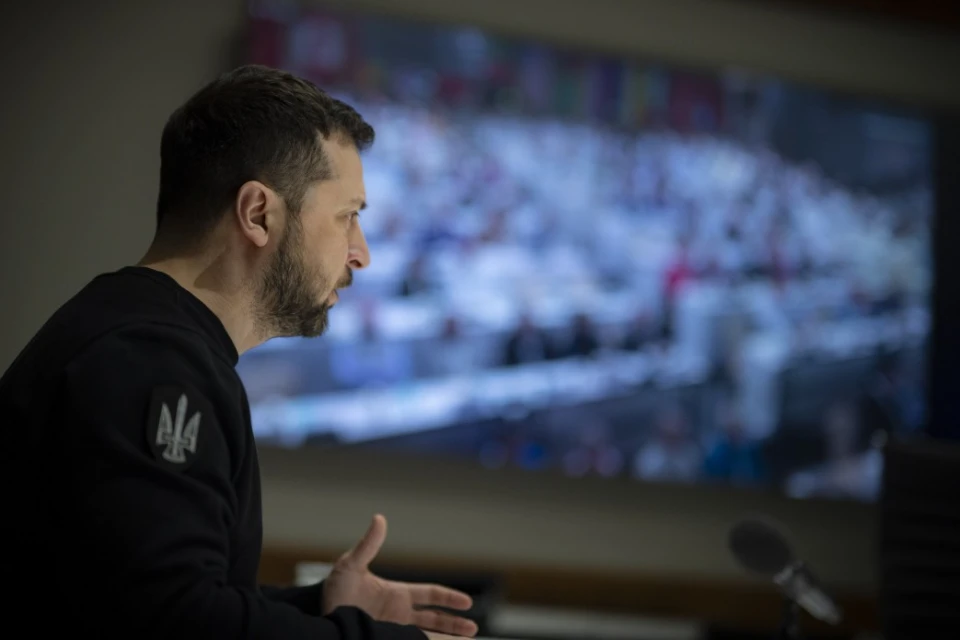
Nothing catastrophic: Ukrainian ambassador and defense minister explain why Zelensky did not speak in US Senate
President Volodymyr Zelenskyy canceled his speech to the US Senate on December 5, as the closed-door briefings there discussed not only Ukraine but also domestic issues. In addition, the cancellation of the speech is explained by the fact that the war in Ukraine is ongoing and the situation is constantly changing.
Ambassador of Ukraine to the United States Oksana Markarova said in a telethon.
According to her, several internal briefings were planned in the US Congress, and Zelenskyy was supposed to speak at one of them. However, the Ukrainian president's speech was canceled because not only the problems of our country were discussed, but also internal American problems.
"Nothing catastrophic happened. A series of internal closed briefings were scheduled for today (December 5 - ed.), where Austin (US Secretary of Defense - ed.) and other administration representatives spoke. There were a lot of them. There was an idea to attend one of several of these briefings if possible. ... Precisely because they were discussing not only Ukraine but also domestic issues, we did not attend today," Markarova said. The ambassador added that the Ukrainian delegation, which includes Verkhovna Rada Speaker Ruslan Stefanchuk, Defense Minister Rustem Umerov and Presidential Chief of Staff Andriy Yermak, has held an extraordinary number of briefings and will continue working in Congress on Wednesday.
At the same time, Defense Minister Rustem Umerov told FoxNews that Zelenskyy could not attend the scheduled briefing with senators because there is a war in Ukraine and the situation is constantly changing. "It's a war, the situation is changing. But I think Zelenskyy is grateful and will do it the next time it is possible," the defense minister stressed.
Zelenskyy cancels briefing in US Senate amid funding dispute - media
At the same time, the unexpected last-minute refusal of Ukrainian President Volodymyr Zelenskyy to deliver an online speech in the Senate became an important event reported by many foreign media outlets.
The BBC writes that Zelenskyy has called off a high-profile briefing with US lawmakers amid an impasse over future US funding for the country. “It came after a top Ukrainian official warned they are in danger of losing the war against Russia if more US military aid is not approved. Senate leader Chuck Schumer did not explain why Mr Zelensky was a no-show,” the publication writes. “Mr Zelensky's chief of staff, Andriy Yermak, said earlier on Tuesday there was a "big risk" of Ukrainian defeat without continued US support. "It will be difficult to keep in the same positions and for the people to survive," he added, in a speech at the US Institute of Peace in Washington DC. Mr Yermak's dire assessment was given just hours before Mr Zelensky pulled out,” adds the publication.
"We are out of money - and nearly out of time," wrote Shalanda Young, the White House budget director, in a letter to Republican and Democratic leaders published on Monday. She warned that a failure by Congress to approve more military aid to Ukraine before the end of the year would "kneecap" the nation in its fight against Russia and that there was no "magic pot of funding" left to draw from.
On Monday, however, the Republican Speaker of the House of Representatives, Mike Johnson, seemed dismissive of the latest pleas to provide tens of billions of dollars more in funding.
"The Biden Administration has failed to substantively address any of my conference's legitimate concerns about the lack of a clear strategy in Ukraine, a path to resolving the conflict, or a plan for adequately ensuring accountability for aid provided by American taxpayers," he wrote on social media. The funding impasse comes as fighting on the frontlines appears to have reached a practical stalemate.
Since the war broke out in February 2022, the U.S. Congress has approved more than $110 billion in military and economic aid to Ukraine. However, the Biden administration has warned for months that most of this money has already been distributed.
According to Frederick Kagan, director of the Critical Threats Project at the American Enterprise Institute and former professor at the U.S. Military Academy, the funding delays are already having real consequences on the Ukrainian battlefield. The counteroffensive against Russia is being curtailed, and future operations to recover lost territories are in question.
- News














































